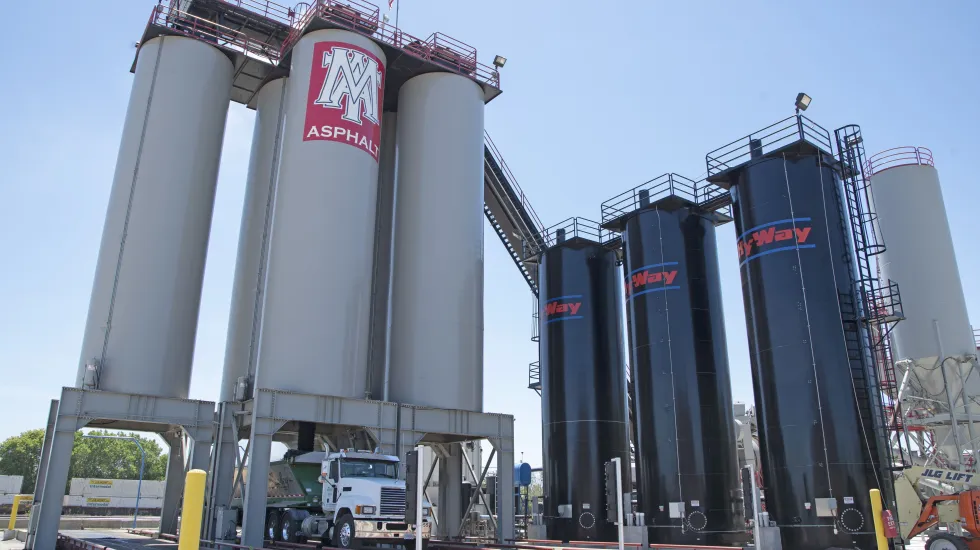
A controversial asphalt plant in McKinley Park has made a bid of just over $500 million to do contract work for the city for the next five years — a potentially large expansion in production that residents worry will result in more air pollution in the community.
The bid by MAT Asphalt would supply city crews across Chicago that repave streets and alleys and patch potholes. The work potentially would amount to hundreds of thousands of tons of additional asphalt production, though the actual number would depend on demand.
“If they start making enough asphalt to supply the whole city, McKinley Park won’t have a breath of clean air for the next five years,” Alfredo Romo, executive director of the community group Neighbors for Environmental Justice, said in a statement.
Since 2018, when MAT opened across from McKinley Park, a group of residents have been fighting the plant, lodging odor complaints with the city and urging officials to shut it down. Mayor Lori Lightfoot criticized the decision to allow the plant to open — an approval made during Mayor Rahm Emanuel’s administration.
MAT is allowed to make up to 890,000 tons of asphalt a year under a state permit but didn’t make close to half that amount last year, co-owner Michael Tadin said in an interview.
He said producing more asphalt won’t extend the hours of the operation, which begins making the material in the early morning and continues until around midday.
Tadin has said the complaints about the smells from his plant are exaggerated and he’s challenging city fines of $4,000 in state court. He also said he’s providing an important service to the city at prices lower than competitors.
“The cost savings are very substantial,” Tadin said. “It benefits the city. That really benefits the people.”
In January, Tadin released a consultant’s report that found testing of the facility’s machinery showed levels of hazardous air pollutants were less than 10% of limits set by the state for MAT’s operation.
The testing results are being reviewed by the Illinois Environmental Protection Agency, which will make its own assessment. The state EPA is analyzing air emissions from asphalt plants along with the University of Illinois Chicago to determine cumulative health impacts in the community.
The McKinley Park group tracked hundreds of complaints to the city and says that no other industrial source in Chicago has spurred so many calls.
Tadin has said many of those complaints should be directed at other industrial sources in McKinley Park.
Brett Chase’s reporting on the environment and public health is made possible by a grant from The Chicago Community Trust.







